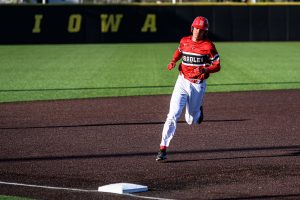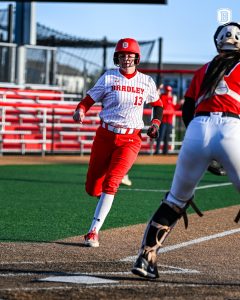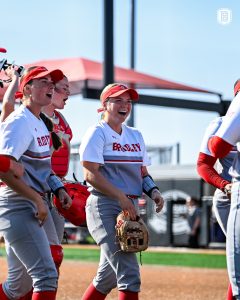Yes
BY JACOB STEINBERG
Baseball fans have grown accustomed to bad calls being a determining factor in the outcome of a game. The age of the automated umpire has dawned upon us, and it’s time to implement.
Automated umpires will make the game more efficient and allow it to be played at a faster pace because it will eliminate arguing balls and strikes. The implementation will also allow for a more refined strike zone for every hitter, whether it be 6-foot 7-inch Yankees outfielder Aaron Judge or the Astros 5-foot 6-inch second baseman José Altuve.
An accurate strike zone will give hitters a better idea of which pitches to swing at or lay off of, which in turn creates more offense which is something the MLB wants. It will also end bizarre sequences in which a hitter is down two strikes on pitches that were nowhere near the zone.
Allan argues that automated umpires will get rid of the human element of the game along with player and manager conflicts with umpires. However, the human element of the game will still remain, albeit in a limited capacity.
When the technology was tested by the Atlantic League this summer, a human umpire was present. The umpires were assisted in calling balls and strikes by a 3-D doppler radar tracker known as “TrackMan.” When a pitch is thrown, TrackMan identifies the ball’s location in the zone and relays the call to a human umpire wearing an earpiece that is connected to a cellular phone.
This innovation is sitting right in front of baseball fans who are constantly frustrated by bad calls determining the outcome of a game. Fans should recognize that there is a flaw when there seems to be a different strike zone every night. Athletes are only getting bigger, faster, and stronger, which will only make it more difficult over time for the human element of judgment to keep up.
It is time for baseball to get a better grip on the consistencies of a strike zone and the overall rule book. The technology for automated umpires is here and it should be implemented for a better and more efficient game.
No
BY ALLAN KABESE
This stance might be unpopular amongst some modern baseball fans, but all things considered, MLB should not implement automated umpires.
The most important factor leading to the decision is that the majority of baseball fans believe that introducing an automated strike zone would eradicate mistakes from the game.
The Atlantic League, an independent professional league, recently adopted an automated strike zone and the results are still not perfect. High balls are often called strikes and the system often struggles with backdoor breaking balls and pitches that have late movement.
According to a study at Boston University, the top-10 umpires make bad calls only 9 percent of the time in 2018. The bottom-10 made bad calls only 14 percent of the time in 2018. All the umpires in top-10 had five years or less of umpiring experience in the major leagues. This means that as time goes on, the younger the umpiring body gets, the more likely bad calls are to decrease.
Part of the excitement attached to watching sports is the fact that that the officiating is done by humans. This leads to mistakes, whether it is in favor or against the team you are rooting for. Removing the human element from a sport like baseball will heavily diminish its excitement.
Adding an automated strike zone would also heavily decrease the value of the catcher, a position that is already does not get enough praise. It is the second most important position. Analytics, which have become a fundamental part of the sport, have showed the great defensive value added by catchers by “framing pitches.” Removing that undervalued aspect of their game would significantly decrease the value of the second most important position in baseball.
If a change were to come about, fans would be deprived of the entertainment that angry managers bring to the table. Part of the experience of watching a baseball game is seeing coaches and players yell at umpires to argue that a strike was a ball or vice-versa. Who does not want to see true New Yorker Joe Girardi get in an umpire’s face after getting ejected?








